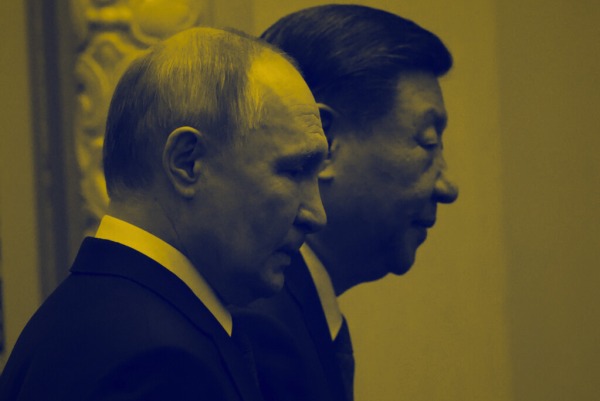The 20th-century American philosopher Robert Nozick once coined a thought experiment that has since become a classic in “Introduction to Ethics” classes: the “experience machine.”
Imagine, he proposed, that a machine could grant you any experience you wanted. You could travel the world, taste the finest foods, experience intense love—the machine would know no bounds but those of your imagination. Importantly, the experiences within the machine would feel indistinguishable from their “real-world” equivalents. They would be perfect replicas, with one major exception: You would have absolute control over the machine’s reality and relatively little control over your own.
Would you choose to spend the rest of your life in the experience machine? When Nozick first asked this question to his students in the 1970s, the overwhelming majority answered by the negative. Today, half a century later, students often side with the experience machine over the real world.
In The Extinction of Experience, Christine Rosen, a senior fellow at the American Enterprise Institute, argues that technology—especially digital technology—is responsible for this shift. Since the rise of the internet, we have built tools that have reconstituted our habits, norms, skills, and relationships in the image of the digital world. In the process, certain types of experiences—some trivial, others fundamental—have faded from our lives.
In elegant prose, Rosen chronicles dozens of stories to show the disappearance of these experiences from the way we talk, write, date, travel, play, cook, learn, and more. Going to a restaurant without looking at the reviews online. Approaching a girl at a bar instead of “matching” with her on a dating app. Visiting a foreign city without posting about it on Instagram. Writing with a pen, preferably in cursive. Talking about politics with strangers at a café instead of yelling at them on Twitter. Making eye contact. Closer to a series of impromptus than to a sequential argument, the book coalesces into a coherent whole as the anecdotes accumulate. Read in isolation, Rosen’s examples would hardly bother anyone. Taken together, however, they amount to an altogether different world—a flatter, emptier, colder world.
Consider handwriting as an example. Rosen cites studies to show that taking notes with a pen makes us better learners and thinkers, but she also defends the very physicality of the act. As she puts it, writing “forges connections between mind and body.” It binds our thoughts to our hands, submitting our internal monologue to the rhythm and constraints of word-crafting. Handwriting is “inefficient” in the way that all embodied experiences are inefficient: It forces our mind to confront the limits of the flesh, a friction out of which a stronger sense of self emerges. Handwritten notes are our own in a way that typed notes are not. They express the idiosyncrasies of the mind through the body, fusing the two without intermediaries. To feel at home in one’s body is to cultivate and cherish that kind of connection.
In her vignettes, Rosen paints the portraits of men and women who have forgotten their bodies, human beings for whom the flesh has become an uncomfortable burden. Rosen cites an astonishing study from Japan, according to which about a third of young people are “not interested in or despise sexual contact.” This statistic remains an outlier, but it captures a broader retreat from the body that she both documents and laments. The once-negligible percentage of people who prefer “reproductions of paintings to the inconvenience of going to a museum, the safety and predictability of pornography to sex with a real person, and the cooking show to the cooked meal” is not so negligible anymore. Between a convenient simulation, however inadequate, and an inconvenient but embodied experience, we increasingly choose the latter. And choosing the latter again and again, at scale, means erasing the former from our lives.
Though Rosen never makes this point explicitly, this retreat from embodied life amounts to a reduction of a certain conception of freedom. When she deplores our tendency to prefer the convenient to the demanding, the predictable to the spontaneous, or the boundless to the restrained, her target is not a set of technologies but an attitude toward the world. We moderns tend to equate freedom with autonomy and control. We seek mastery over nature and ourselves. We prefer to act without impediments. We look to all limits with suspicion, if not anger. These tendencies correspond to a disposition that far predates the internet. It’s no coincidence that most of the philosophers on whom Rosen draws along the way—Theodor Adorno, Simone Weil, Lewis Mumford, and others—are adamant critics of modernity. To oppose our relentless thirst for choice and control is not merely to oppose virtual reality, but also to question some of the Enlightenment’s core principles.
Of course, digital technology has an ambiguous relationship with modernity. On the one hand, the internet seems to mark the culmination of our search for control and autonomy. The Greek root cyber means “to steer,” and the same word in Latin means “to govern.” Virtual reality is a reality over which we rule. On the other hand, the fact that we must escape from this world to achieve control betrays the failure of the modern conquest of nature. As the philosopher Antón Barba-Kay puts it, “technology’s issue has always been to overcome the friction of time, space, matter, and natural circumstance.” Digital technology achieves one version of this objective, but only by creating an alternative reality of our own making. Instead of wrestling with our surroundings, we seek refuge away from them. Instead of achieving mastery in this world, we build a simulacrum of it. In this respect, the fact that we invest so much time and capital into virtual reality proves that we are failed Prometheans.
The question then becomes: What should we do to change course? How can we convince young people that the experience machine is not worth entering? While Rosen does not offer a policy agenda, she does conclude with a call to “place limits on the most extreme transformative projects proposed by our techno-enthusiasts, not as a means of stifling innovation, but as a commitment to our shared humanity.” After more than 200 pages of perceptive lamentations about the disappearance of all that makes us human, however, one might wonder whether digital technology in general—not merely of the most “extreme” kind—needs limits.
As Rosen admits, we cannot “self-help” our way out of these transformations. We can make individual efforts and convince each other to change our habits one initiative at a time, but nothing short of a society-wide response can alter our relationship with technology for good. Across the country, schools and universities are already experimenting with smartphone bans, often to great success. States like Utah have proposed social media curfews for minors. “Offline coffee shops” are becoming more popular. These disparate developments capture a growing desire to emancipate ourselves from our screens.
But the time to act is running out. If the trends that Rosen documents persist, new generations will soon grow up without access to fundamental human experiences. To write with a pen, to memorize poetry, or even to meet a significant other without an app—these will become eccentric, if not unthinkable practices.
Current efforts may or may not suffice to protect these experiences. Either way, the first step toward reform is to get the diagnosis right. By encouraging us to think more about the human condition and less about the “user experience,” The Extinction of Experience offers both a superb reflection on what we’ve lost and a powerful call to reclaim it.






Please note that we at The Dispatch hold ourselves, our work, and our commenters to a higher standard than other places on the internet. We welcome comments that foster genuine debate or discussion—including comments critical of us or our work—but responses that include ad hominem attacks on fellow Dispatch members or are intended to stoke fear and anger may be moderated.
With your membership, you only have the ability to comment on The Morning Dispatch articles. Consider upgrading to join the conversation everywhere.